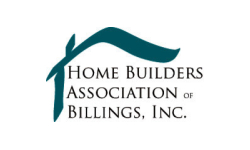"Luckily I have never needed to use a restoration company, but as someone who has worked closely with Alpha Omega, they have treated my clients very well, and have always been honest and very transparent. Although their whole team is very professional and punctual, Carissa and Sonya have been great to work with."
Buying a Home With Mold
Buying a house is challenging enough, but the possibility of mold only makes the task more daunting. Mold threatens the structural stability of a house, and removing mold can be both difficult and expensive. Even if the visible signs of mold growth aren’t present, the spores from the mold growth are microscopic and thrive in damp environments. Additionally, mold can seriously impact a person’s health, with effects ranging from allergic reactions to severe and life-threatening diseases.
With all of this in mind, buying a house with mold can be worrisome. However, by taking the right precautionary measures, you can not only treat any present mold growth but even avoid mold in the future altogether. While catching mold early can help prevent further issues down the line, there are many steps that you can take at any point in buying a house that may help you get rid of and protect against mold going forward.
Here’s What to Know About Mold While Buying a House:

Home sellers have to be honest about mold if they know about it.Montana is a “buyer beware” state, which means home sellers aren’t accountable for any defects found in a house after the sale is completed. However, under Montana law, home sellers must disclose any mold problems that they’re already aware of and cannot obscure these problems from potential buyers. This also includes any follow-up testing for mold and any mold remediation treatment.
Play it safe with home inspections. Even if the visible signs of mold are gone, its spores might still be present in the house. Make sure that you’ve thoroughly gone over the whole property before signing off on the home. You should also make a point of checking the attic and crawl spaces of the house since mold thrives in these dark, damp areas.
Check to see if the seller is offering remediation credits. Many home sellers offer mold remediation credits when selling a home. With this option, you can begin treatment on the house with a mold treatment service you trust.
Check with your insurance provider. Many insurance companies cover mold remediation, but many others do not. Before making the final purchase, check to see if your current provider covers mold remediation.
Seek professional mold remediation.If you go through with your home purchase, it’s a wise idea to get a professional service to treat your mold infestation. While you can treat mold yourself in small amounts, it’s not necessarily a long-term solution. Failing to address the mold’s spores can lead to mold growth in the future. To prevent mold from returning or growing worse, seek out a professional service.
Prevent mold from making a comeback. With the right precautions, you can protect your home from mold moving forward. Taking steps like waterproofing your basement, insulating your home’s piping and ducts, and installing dehumidifiers will help you avoid more mold problems in the future.
How to Get Help With Mold Remediation in a Montana Home
Mold outbreaks can become a liability if left untreated, often damaging property. Left alone, mold can damage a building’s structure, from carpeting to insulation. Mold also presents a serious health hazard, and it can cause irritations, infections, and even life-threatening conditions in some people. When buying a property with a mold infestation, it’s important to seek professional treatment quickly. At Alpha-Omega Disaster Restoration, we can help.
Whether you’re still inspecting and negotiating the property, or if you’ve moved on to treating the mold itself, our professionals are certified to both detect and treat mold. With some help from Alpha-Omega, we can repair damage in your home and eliminate the infestation. We can even help you take steps to prevent mold growth in the future, keeping you safe and happy in the comfort of home. Contact us today, and let us know how we can help you.













